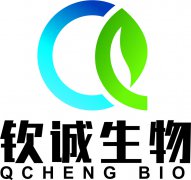细胞因子重组蛋白

Animal-Free Recombinant Human TNF-α
Animal-Free Recombinant Human TNF-α
产品详情
TNF-α is a pleiotropic pro-inflammatory cytokine secreted by various cells, including adipocytes, activated monocytes, macrophages, B cells, T cells and fibroblasts. It belongs to the TNF family of ligands, and signals through two receptors, TNFR1 and TNFR2. TNF-α is cytotoxic to a wide variety of tumor cells, and is an essential factor in mediating the immune response against bacterial infections. TNF-α also plays a role in the induction of septic shock, autoimmune diseases, rheumatoid arthritis, inflammation, and diabetes. Human and murine TNF-α demonstrate significant cross-species reactivity. TNF-α exists in two forms; a type II transmembrane protein, and a mature soluble protein. The TNF-α transmembrane protein is proteolytically cleaved to yield a soluble, biologically active, 17 kDa TNF-α, which forms a non-covalently linked homotrimer in solution. Recombinant Human TNF-α is a soluble 157 amino acid protein (17.4 kDa) which corresponds to C-terminal extracellular domain of the full length transmembrane protein.
Manufactured using all Animal-Free reagents.
Source: E.coli
Synonyms: Tumor Necrosis Factor, TNFSF2, Cachectin, Differentiation-inducing factor (DIF), Necrosin, Cytotoxin
AA Sequence: VRSSSRTPSD KPVAHVVANP QAEGQLQWLN RRANALLANG VELRDNQLVV PSEGLYLIYS QVLFKGQGCP STHVLLTHTI SRIAVSYQTK VNLLSAIKSP CQRETPEGAE AKPWYEPIYL GGVFQLEKGD RLSAEINRPD YLDFAESGQV YFGIIAL
Purity: ≥ 98% by SDS-PAGE gel and HPLC analyses.
Biological Activity: The ED50 as determined by the cytolysis of murine L929 cells in the presence of Actinomyocin D is ≤ 0.05 ng/ml, corresponding to a specific activity of ≥ 2 x 107 units/mg.

